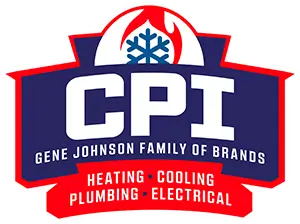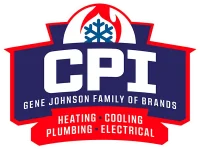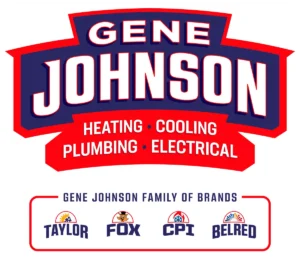Heat Pump Repair in Bellingham, WA
Need help with your heat pump problems?
Call (360) 822-9306 for immediate service in Bellingham, WA.
As any longtime Bellingham resident understands, our mild yet damp climate really puts the screws to residential heat pumps. Maintaining reliable heating and cooling isn’t just a nicety – it’s absolutely vital for an enjoyable living environment and sensible energy bills.
That’s why you need pros you can trust for expert heat pump repair service when hiccups inevitably occur. At CPI Plumbing, Heating, Cooling & Electrical, our certified HVAC techs have spent decades mastering the ins and outs of heat pump systems across Whatcom County.
Whether it’s a reversing valve conking out, refrigerant leak, failed compressor, or electrical gremlins, we’ve diagnosed and repaired every malfunction under the sun. Our specialists utilize the latest tools and know-how to get to the bottom of any issue and restore full heating/cooling capacity quickly. Need emergency repairs to get that heat pump back up and running? Our HVAC professionals are just a call away, 24/7.
Don’t let heat pump headaches disrupt your household’s comfort and budget another day. Call the locally-trusted pros at CPI today at (360) 822-9306 to get the repair ball rolling. We’ll have your system operating like a champ again before you know it.
CPI’s Heat Pump Repair Process in Bellingham, WA
At CPI, we get just how crucial a properly humming heat pump is for enjoying comfortable indoor living and reasonable energy costs all year round in Bellingham. That’s why when homeowners run into operational hiccups, our certified HVAC pros follow a comprehensive, headache-saving repair process from initial troubleshooting through implementing long-lasting fixes.
Inspection and Diagnostics Up Front
First up, we thoroughly inspect and diagnose your entire heat pump system. Our techs examine every component up close – checking refrigerant levels, electrical connections, airflow, temperature splits, defrost controls, you name it. We also bust out specialized tools to monitor performance data like compressor amp draws and pinpoint any irregularities.
Getting to the Real Root
With all those detailed operational insights, our heat pump gurus can accurately identify what’s actually causing any malfunctions or inefficiencies. Whether it’s something straightforward like a bad contactor or complex issues like a burnt compressor, we’ve seen it all and know what to look for.
Upfront Solution Convos
Once we’ve nailed down the diagnosis, we’ll sit down and consult with you directly about recommended repair solutions and all the options on the table. We believe in full transparency, explaining all the repair procedures and costs upfront before any work proceeds. No surprises.
Repair Workmanship Done Right
If you give us the green light on the repair plan, our techs get to work with their trademark workmanship and extreme attention to detail. We follow manufacturer guidelines to a T, using factory-authorized components and techniques specific to your equipment’s make and model. Cutting corners is never an option.
Comprehensive Testing Process
But just completing those repairs isn’t enough – we have to validate they’ve restored optimal performance too. That’s why our techs run the system through a full battery of comprehensive testing and monitoring to ensure the fix is 100% reliable. We’ll make any final calibration tweaks before wrapping up.
From that initial service call through those last system checks, you can count on CPI’s heat pump repair process to live up to the highest standards of professionalism and craftsmanship. Reach out at (360) 822-9306 today!
Are There Any DIY Solutions for Fixing a Heat Pump That Won’t Turn On?
We get it – wrestling with an ornery heat pump that simply refuses to kick on can test any homeowner’s patience and pocketbook quickly. Those emergency repair calls inevitably come with a premium price tag too. So it’s only natural to wonder if there aren’t some DIY solutions worth trying first before punting to the professionals.
Well, for the particularly handy and mechanically inclined, there are indeed a few basic troubleshooting steps you could attempt tackling safely yourself. But we really can’t stress that word “basic” enough. Anything too in-depth risks compromising your system further or personal safety.
Start With the Breakers
One of the most common culprits behind a totally unresponsive heat pump? Tripped circuit breakers! Before assuming anything more sinister, check that the breakers serving your outdoor condenser unit and indoor air handler haven’t tripped. Reset them firmly if so.
Check Thermostat Settings
Similarly, you’ll want to ensure your thermostat is actually set to “Heat” mode and registers an elevated temperature setpoint too. It might sound obvious, but incorrect settings can easily get overlooked when frustrations mount.
Replace Batteries
For units running off thermostat batteries, another quick potential fix involves swapping those batteries out for a fresh set. Depleted power could be disrupting signals to your heat pump system.
Clear Outdoor Unit
If those basic checks don’t reveal any issues, you could also try clearing any obstructions like vegetation or debris surrounding your outdoor condenser unit that might be impairing airflow. Just be extremely cautious around those electrical components!
Beyond those relatively tame DIY options, any more intrusive heat pump troubleshooting and repair work really should get left to the certified professionals. Between complex electrical circuitry, refrigerant systems, and mechanical components, there’s just too much risk of personal injury or property damage for amateurs.
So don’t keep wasting time and money on fruitless DIY repair efforts. One call to the trusted HVAC experts at CPI gets your heat pump running safely and effectively again quickly!
How Does Salt Air Near Bellingham Wreak Havoc on Heat Pump Coils?
Living hugged up against the salty shores of Bellingham Bay and the Pacific inlet, local homeowners have to keep a real close eye on how that briny coastal air can mess with critical HVAC components like heat pump coils. That metal fin and tubing can take a serious corrosive beating from airborne salt particulates if you’re not careful.
See, heat pumps need maximum airflow exposure across those coils to effectively transfer thermal energy and do their heating and cooling thing. But when salt buildup accumulates on those coil surfaces, it acts like insulating kryptonite blocking all-important air circulation. Restricted airflow equals reduced efficiency, higher utility bills, and unnecessary system strain as it works overtime trying to compensate.
But it gets worse – that salt air can really accelerate deterioration of the coils themselves over time if you ignore it too. The corrosive properties eat away at those metal fins and tubing walls, allowing for refrigerant leaks to spring up. Those leaks force the compressor to work even harder making up for lost refrigerant charge, increasing operational stress even more.
If you let severe coil corrosion go totally unchecked for way too long, it can eventually punch straight through refrigerant lines, leading to full-blown system failures requiring pricey repairs or even entire coil and component replacements down the road. Not a fun home project to budget for!
Thankfully, some simple preventative habits like periodically cleaning off salt buildup and applying protective coatings can go a long way in safeguarding your heat pump from these coastal air hazards. Routine professional maintenance is clutch too.
Of course, if you ever suspect that salty air is compromising your heat pump’s performance or longevity, the certified HVAC pros at CPI are just a call away. We’ll inspect those coils thoroughly and implement the proper protective solutions to preserve your investment!
What Are Common Heat Pump Issues During Bellingham’s Cold Winters?
As if that salty coastal air wasn’t enough for heat pumps to contend with around these parts, our notoriously bone-chilling Bellingham winters really put those HVAC workhorses through the wringer too. When those bitter northwesterly winds come howling in off the Bay, homeowners need to keep an eye out for some common cold-weather heat pump hiccups.
One of the biggest culprits? Ice accumulation on those all-important coils we just discussed. When temperatures dip below freezing, any residual moisture can cause ice buildup that gradually obstructs airflow across coil surfaces. As that ice thickens, your heat pump’s efficiency gets strangled while operational stress skyrockets.
Excessive ice can also wreak havoc on other sensitive components like the reversing valve. This critical part is responsible for switching refrigerant flow directions between heating and cooling modes. If it gets obstructed or stuck due to ice buildup, your heat pump may start exhibiting some schizophrenic behavior bouncing between modes erratically.
Speaking of that refrigerant, Bellingham’s deep freeze conditions can cause its own issues with refrigerant charge levels and pressure rates too. If charge gets too low or pressure imbalances occur, your heat pump’s heat transfer capabilities get seriously compromised. You’ll struggle to achieve comfortable indoor temperatures no matter how hard that compressor churns away.
While some preventative measures like installing defrost controls and pump covers can help mitigate cold-weather woes, you really can’t beat professional preventative maintenance.
Having one of CPI’s certified heat pump technicians give your system a thorough preseason inspection and tune-up provides unbeatable peace of mind.
Of course, if you do start noticing any unusual performance issues once winter’s big chill sets in, don’t hesitate to give us a call ASAP! Our experts will get your heat pump running smoothly and reliably again quickly.
Why’s My Heat Pump Whistling Like a Tea Kettle?
There’s few sounds that’ll make a homeowner’s stomach drop faster than hearing an unexpected, ear-piercing whistle or screech coming from their heat pump. That high-pitched noise just sets off all kinds of internal panic alarms about potential system meltdowns brewing. Trust us, we get those frantic calls all the time!
Now the good news is, that whistling doesn’t necessarily mean your heat pump’s circling the drain quite yet. More often than not, it actually stems from something as simple as excessive airflow restrictions causing turbulent air noise. It could just be that your indoor air filters are plumb disgusting and need changing. Or maybe that outdoor condenser unit is surrounded by overgrown vegetation or debris blocking airflow.
Either way, clearing those blockages can frequently solve the whistling pretty quick by restoring proper, unrestricted airflow volumes. It’s an easy enough DIY fix to attempt yourself – just swap those indoor filters or clear away any junk around the condenser. Just be careful around those outdoor electrical components!
However, if clearing airflow doesn’t silence that whistling, it could potentially indicate more serious internal heat pump problems. Potential culprits could be a refrigerant leak allowing excess air infiltration, failing compressor components, or issues with that reversing valve switch. For those complex repairs, you’ll want to call in the pros.
Similarly, if you’re hearing any whistling or screeching sounds accompanied by funky smells, smoke, or other just plain weird heat pump behavior, that definitely warrants an immediate professional diagnostic inspection too. Those combos of symptoms could signal an electrical issue, frozen components, or other systemic failures occurring.
The bottom line? While a simple whistling noise doesn’t necessarily mean imminent catastrophe, it’s still worth investigating promptly with some basic airflow troubleshooting first. If that doesn’t resolve it, calling in the certified HVAC experts at CPI ensures that whistling gets properly diagnosed and repaired before any real damage gets done. An ounce of prevention is worth it!
How Heat Pump Repairs Get Trickier in Bellingham’s Damp Climate
Operating heat pumps in our perpetually soggy Bellingham climate presents some unique challenges and repair headaches compared to drier regions. With moisture just constantly hanging thick in the air, those hardworking HVAC workhorses have to constantly contend with excessive humidity, condensation buildup, and other moisture madness.
One area that ends up needing extra TLC from CPI’s certified techs? Dealing with corrosion and electrical control gremlins stemming from all that wetness. The damp air can really do a number on exposed metal components and wiring connections over time if you’re not vigilant. We’re talking failures like shorted circuit boards, corroded contactors, you name it.
Excess moisture can also lead to drainage clogs from fun stuff like algae buildup or debris accumulation. When those heat pump condensate pans and drain lines get backed up, that standing water can start corroding components from the inside out. Our guys have to keep a really close eye on clearing those drainage pathways.
Then there’s the heightened refrigerant leak risks our soggy climate creates. Any microscopic cracks or fissures in coil fins or tubing can gradually get worse from moisture repeatedly expanding and contracting within them. Those leaks don’t just degrade performance – they’re also an environmental hazard requiring careful handling on repairs.
Of course, mold and biological growth within those heat pump cabinets and ductwork is an ever-present boogeyman around here too. That funky buildup can quickly spread unsightly damage while circulating unhealthy contaminants throughout your home’s air supply. Preventing that grossness takes some extra sanitization vigilance.
While our professional heat pump repair practices always adhere to the highest workmanship standards, you can count on CPI’s techs going that extra mile to mitigate Bellingham’s moisture mayhem too. We’ll ensure your system keeps chugging along reliably and efficiently no matter how sopping wet it gets out there!
Can Trees or Landscaping Affect Heat Pump Efficiency?
With all the lush greenery and vegetation surrounding our Bellingham homes, you’d think having all those trees and shrubs nearby would be a good thing for heat pump efficiency, right? Providing lovely natural shade and all? Well, as it turns out, letting landscaping elements encroach too close can actually wreak havoc on your system’s performance.
See, those outdoor condenser units need plenty of clear, unobstructed airflow to operate properly. When branches, bushes, or even tightly packed flower beds start crowding that condenser, they can severely restrict air intake and discharge. That diminished airflow puts excess strain on components like the compressor and fan motors as they struggle to circulate enough air volume.
Restricted airflow also allows more debris like leaves, sticks, and nesting critters to accumulate around the condenser. Those obstructions can further impair operations while posing safety hazards if they come into contact with electrical parts. Not an ideal situation!
But it’s not just the condenser side that needs breathing room. Overgrown landscaping crowding your home’s exterior can also start obstructing airflow through wall or window air returns feeding the indoor air handler portion of your heat pump system. Those blockages force it to work harder, wasting energy.
Then there’s the issue of falling leaves, seeds, pollen and branches having a clear path to accumulate directly on top of that outdoor condenser. Too much of that organic debris insulating the unit can overheat sensitive components while providing harborage for moisture issues and critters to take hold.
The simple solution? Maintaining a nice buffer space around both your outdoor and indoor heat pump equipment, free from any landscaping elements. A little pruning and trimming goes a long way towards keeping efficiency optimized! If you’re unsure about safe clearances, CPI’s certified techs can take a look.
The Heat Pump Repair Crew Bellingham Depends On
When your home’s heat pump starts acting up, don’t gamble with sketchy HVAC companies. Turn to the heat pump repair pros at CPI Plumbing, Heating, Cooling & Electrical that Bellingham homeowners trust.
Our certified techs have been mastering the ins and outs of every major heat pump system across Whatcom County for decades. Refrigerant leaks, compressor breakdowns, reversing valve headaches, electrical gremlin issues – you name that repair, we’ve diagnosed and fixed it all with our trademark workmanship and know-how.
But technical expertise is just one part of the CPI standard. You can also count on that same professionalism and meticulous care in how we treat your home throughout the repair process. Our uniformed crews follow strict protocols for jobsite cleanliness, security, and safety on each and every visit.
Plus, we’re big on transparent pricing with zero shady surprises. Before any wrench gets turned, we’ll consult with you directly about recommended repair game plans and all the associated costs. No hidden fees or sketchy upsells, guaranteed.
So why risk it with unproven companies when your comfort and budget are on the line? Generations of local homeowners have depended on CPI’s unmatched heat pump repair service to get it done right the first time. Reach out to us at (360) 822-9306 today to get that repair ball rolling!


